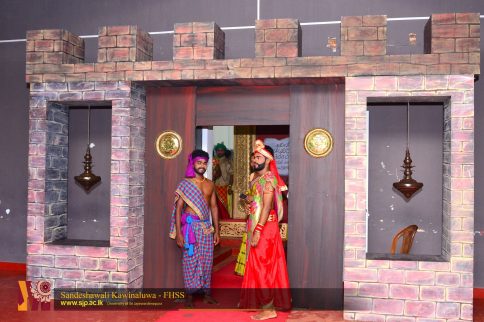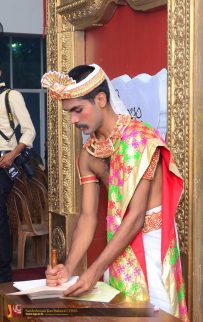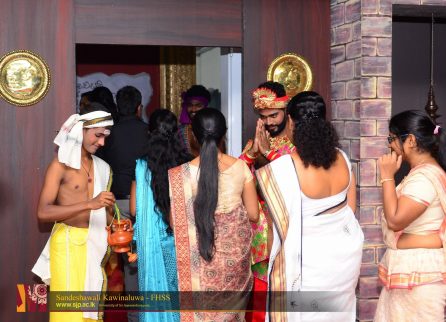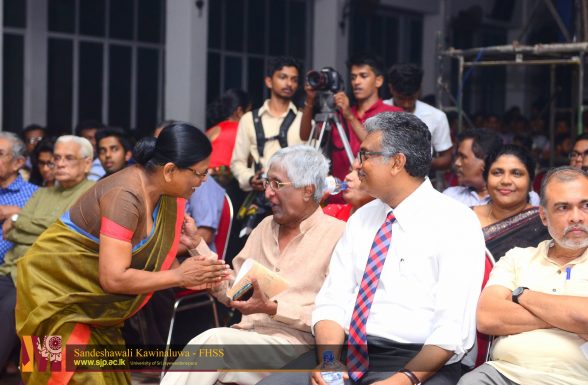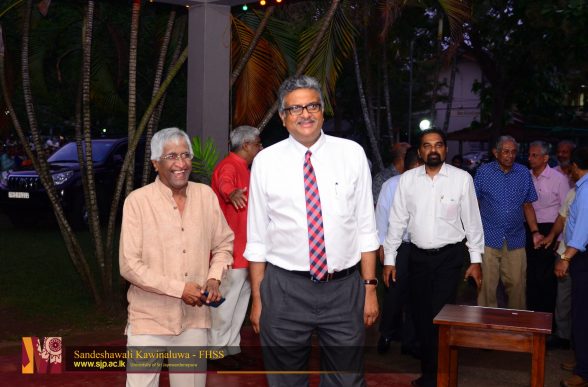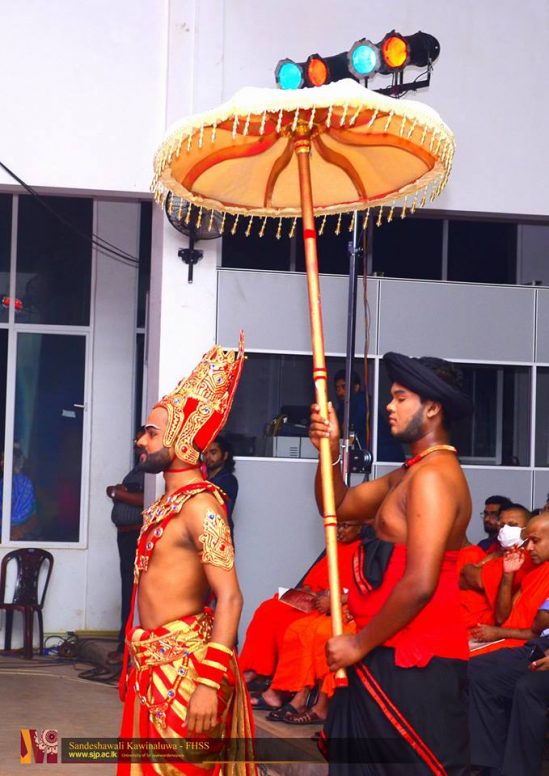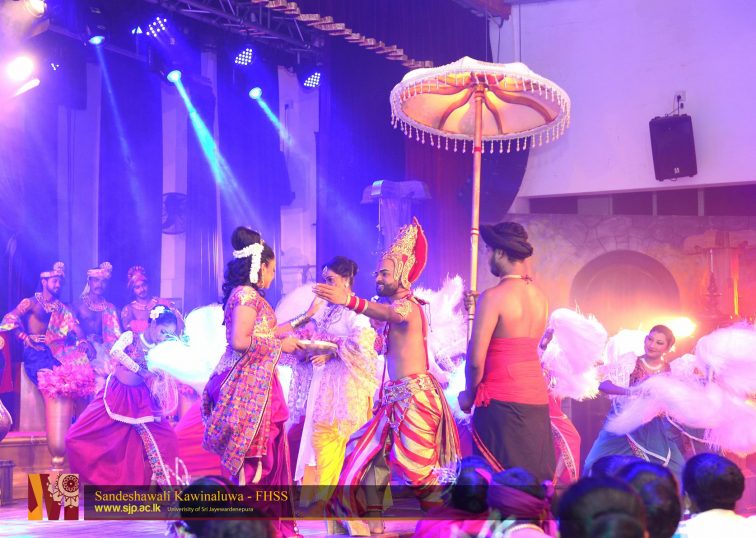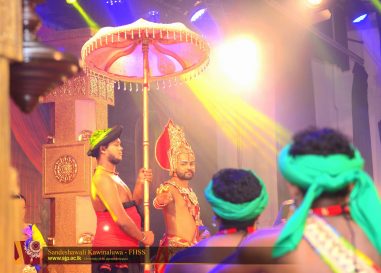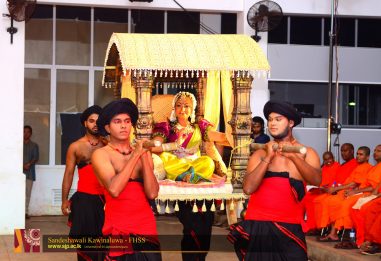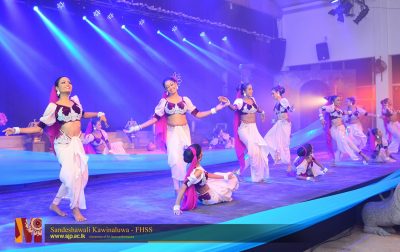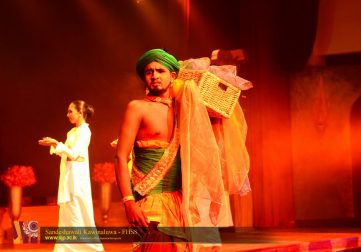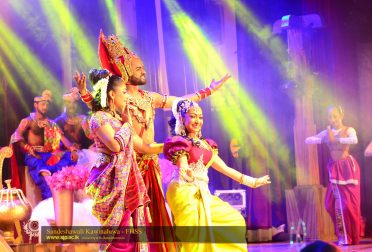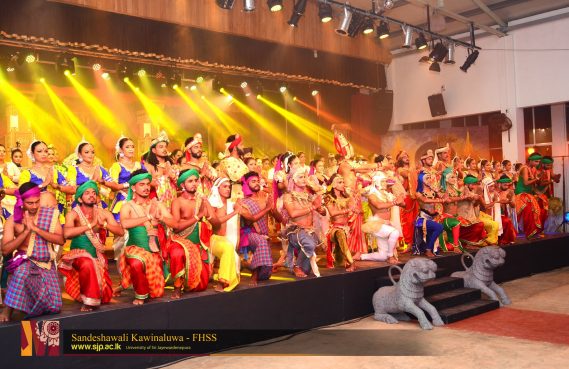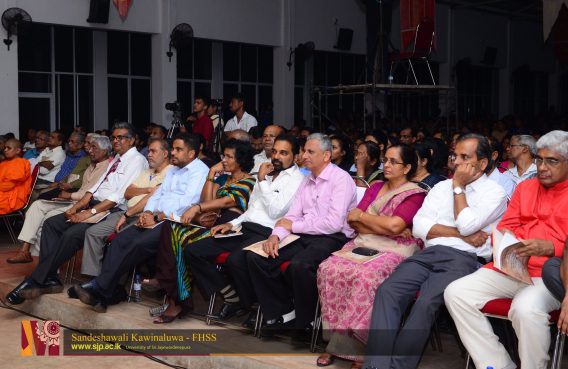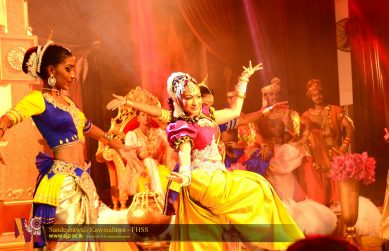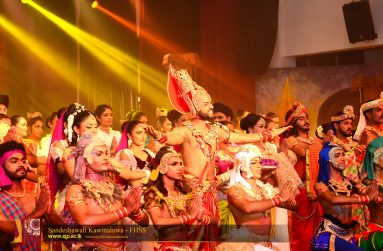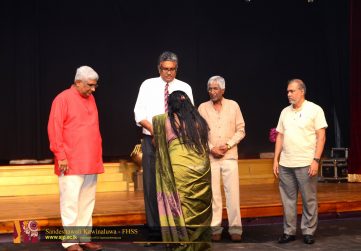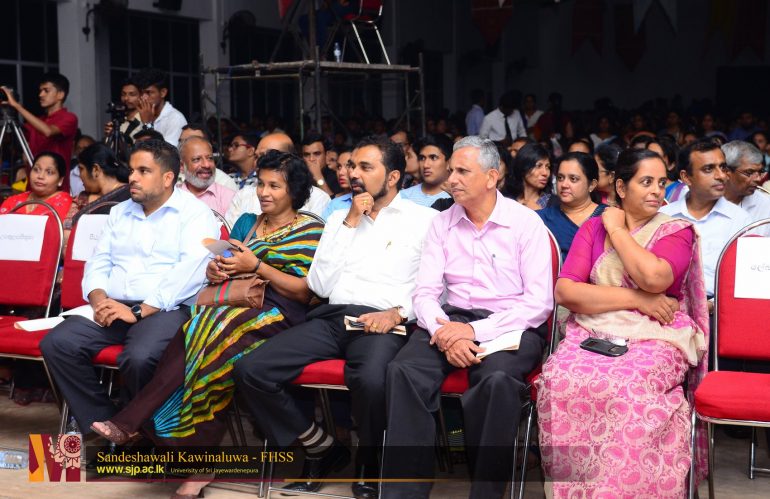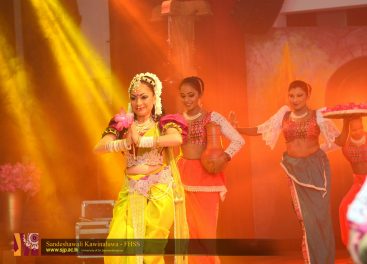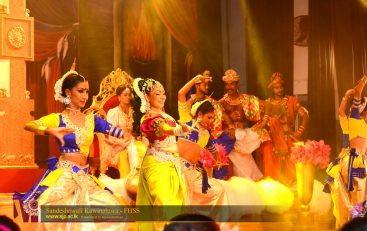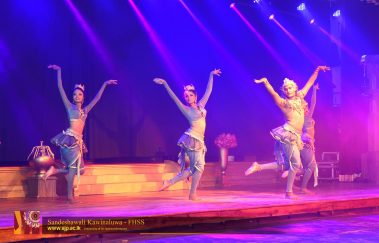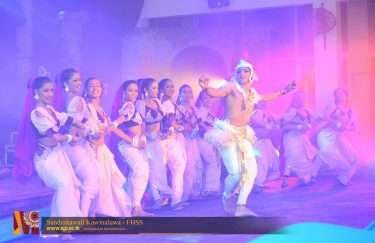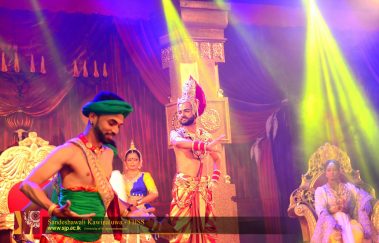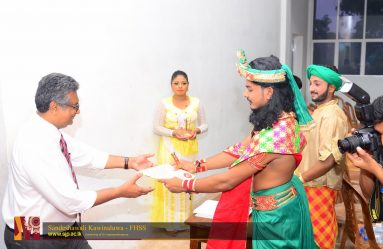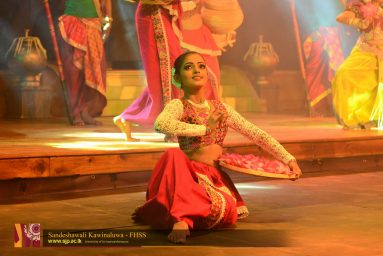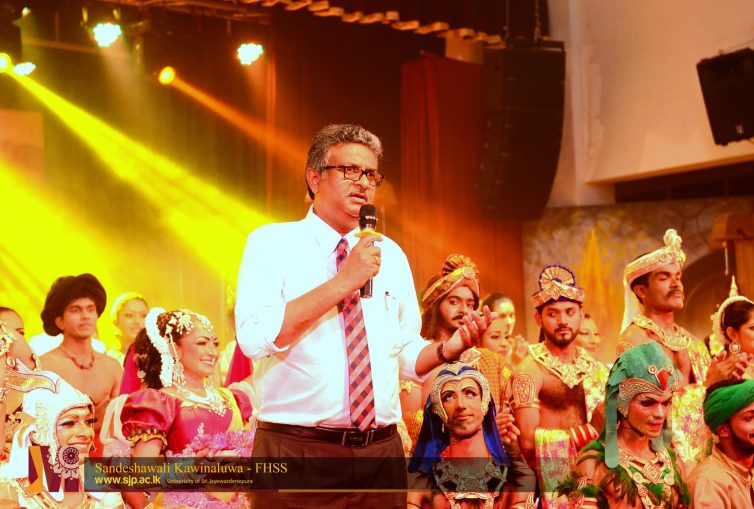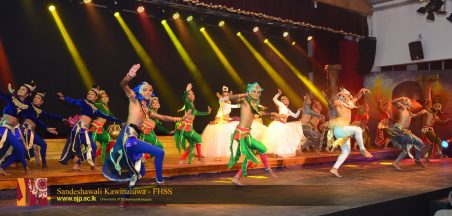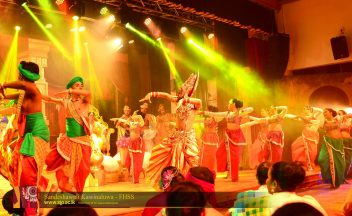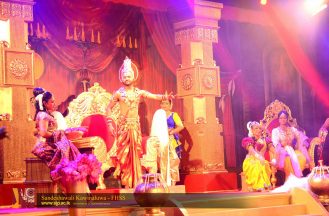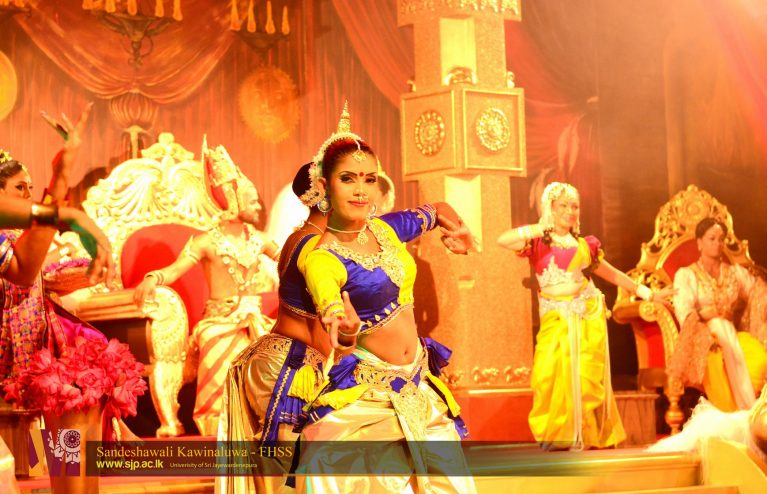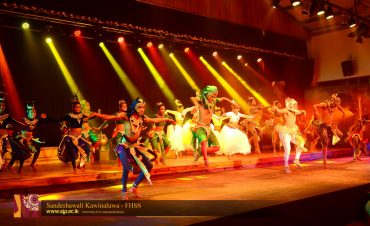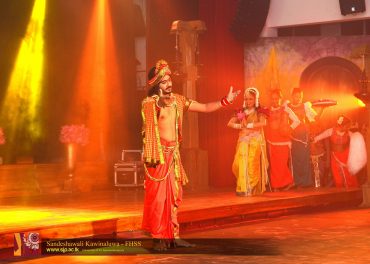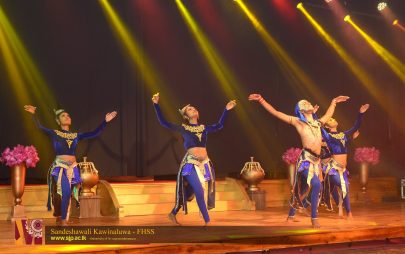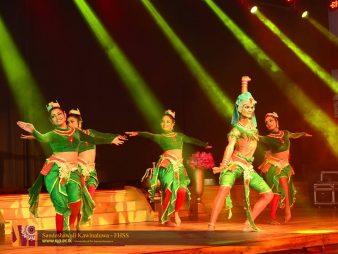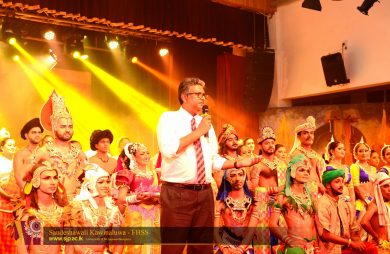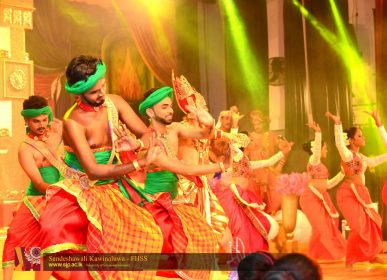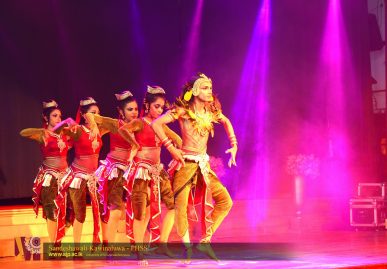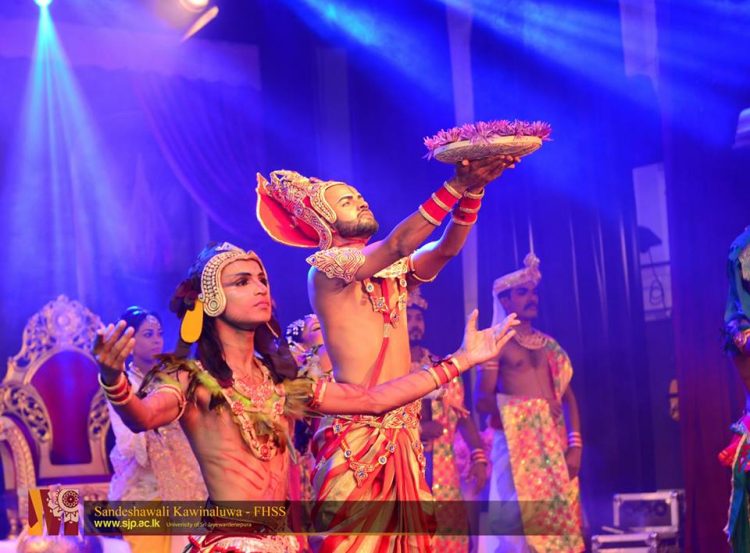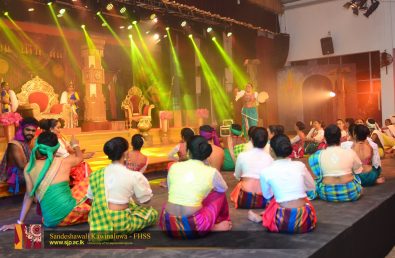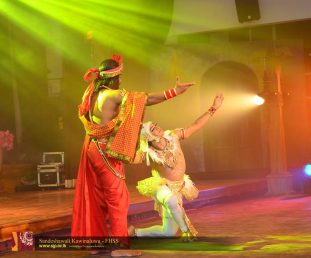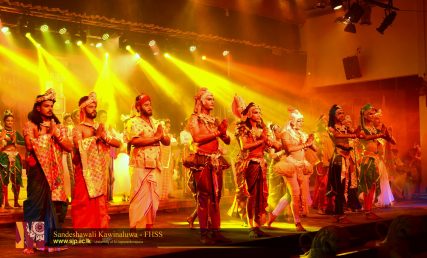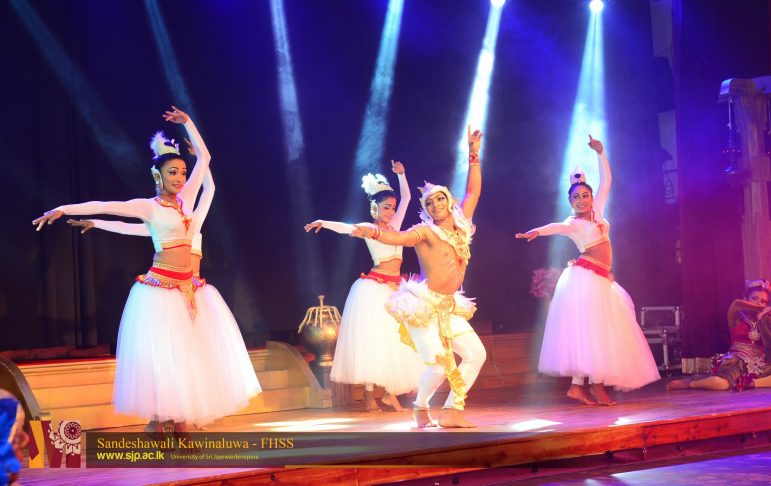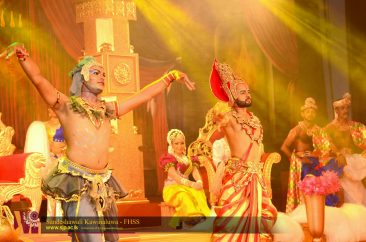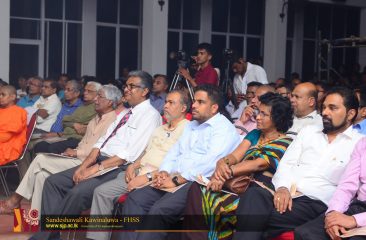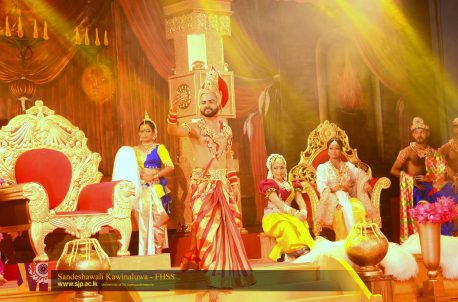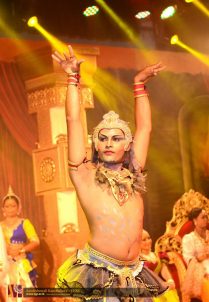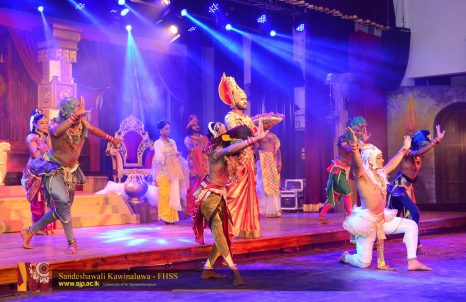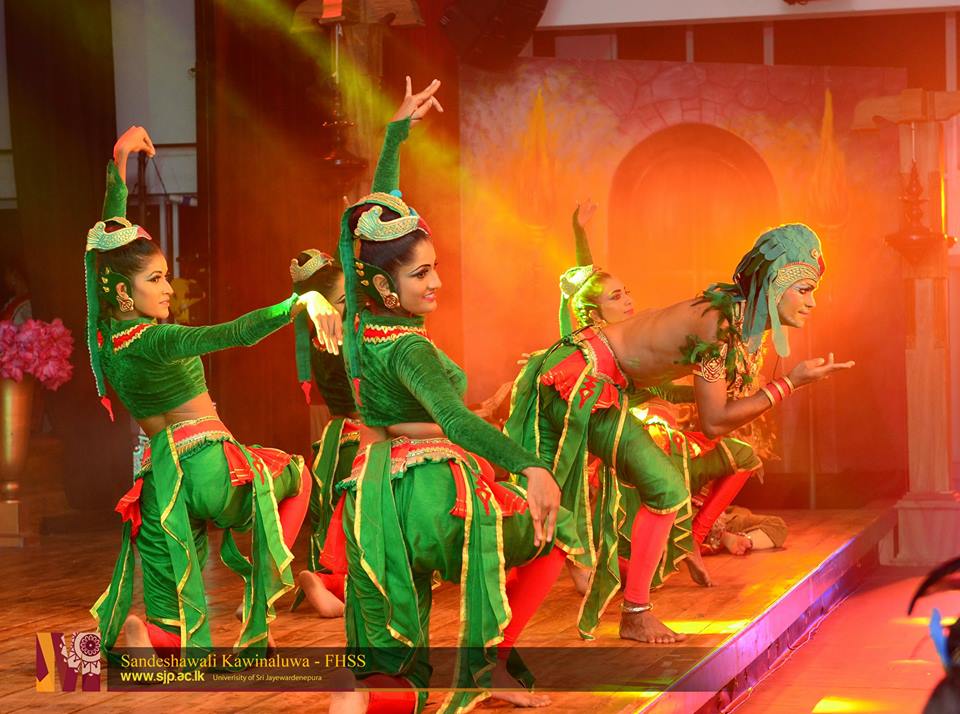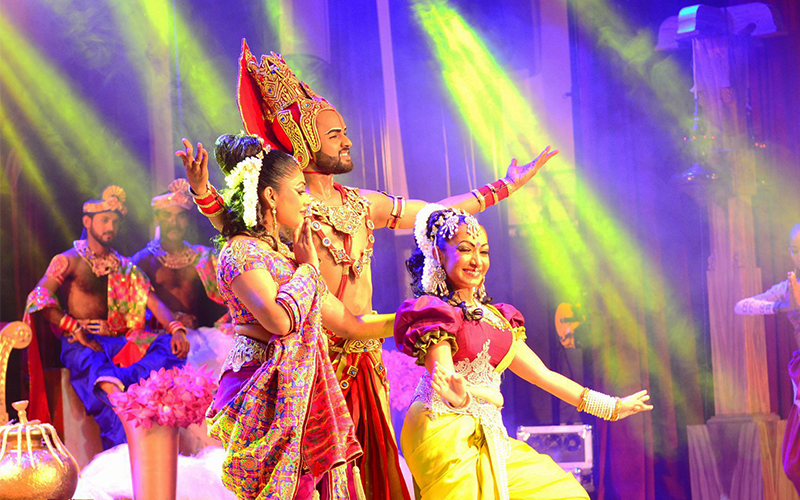
Sandeshavali Kavi Naluva, a theatrical performance produced by the Faculty of Humanities and Social Sciences, was staged at Basha (Bandaranayake Hall, USJ) consecutively on the 11th and 12th of July to a houseful audience which included the Vice Chancellor Prof. Sampath Amaratunge, Dean- FHSS Prof. D.P.S. Chandrakumara, Deans of the other faculties, academics, administrative staff, non-academic staff, artists, media personnel and students.
Sandeshavali Kavi Naluva is founded on Sandesha Kavya, namely; Paravi Sandeshaya, Kokila Sandeshaya, Selalihini Sandeshaya, Gira Sandeshaya and Hansa Sandeshaya written during the Kotte period of the Sri Lankan history. The performance, specifically set against the backdrop of the reign of the king Parakramabahu VI of the kingdom of Kotte during 1412-1467, draws on the traditions of Musical Theatre and Poetic Drama. It enacts the core of the Sandesha Kavya, and portrays on-stage a significant facet of the Sri Lankan literary history to the 21st century audience.
The script of Sandeshawali Kavi Naluwa has been developed by Hansamala Ritigahapola who is a senior lecturer of the Department of Sinhala and Mass Communication. Various poems carefully chosen from the five Sandesha Kavya have been set to music by Prof. Pradeep Ratnayake, Dr. Priyantha Thilakasiri, and Mr. Nuwan Vithanage: dance moves that transformed the script to a poetic musical drama have been created by Mr. P.W. T. Dian, Mr. Deepal Gunasena and Ms. H.P.A Sulochana of the Department of Languages, Cultural Studies & Performing Arts. Based on a thorough academic observation of calligraphy, and the numbers in inscriptions and ancient documents in the Kotte period, letters, and numbers used for Sandeshawali Kavi Naluwa have been designed by Prof. Karunasena Hettiarachchi (Department of History and Archeology). Stage setting of Sandeshawali Kavi Naluwa is by Ms. Nelum Ratnayaka (Department of History and Archeology), Ms. Nadeeshani Imanga (Department of Political Science) and Ms. Nayana Perera (Department of Sinhala and Mass Communication). Costumes were designed by Mr. P.W. T. Dian. In honour of Sandeshawali Kavi Naluva, a special volume was also launched, edited by Dr. S. S. Pereira (Department of English and Linguistics), which consists of articles on a wide range of subjects and aspects related to the Kotte period of the Sri Lankan history and its literature and poetic drama.
This unique musical drama commences with the appreciation of the bird-messengers conveying the necessity for the messages to be winged to the king Parakramabahu VI. Then, its substance refers to an account of the flight the messenger birds take to the destination, and the sights they encounter during their journey. These sights include, for instance, natural beauty, bathing actions, and the crowded, busy city. Then, at the destination, the king is respectfully and courteously seated, as symbolized in Sandesha Kavya. Subsequently, the five messengers reveal the king, by departing from the original content of Sandesha Kavya, which they worship and pray to Upulvan God pleading him to protect the University of Sri Jayewardenepura from all probable and impending vices, menaces and risks. While characters enact these scenes through dance and mimesis, with all costumes to suit the contexts, stanzas blended with music are sung, which have been recorded in advance. The dramatic effects have also been created through a theatrical property.
Sandesawali Kavi Naluwa which characterizes a unique historical landmark of the legendary journey of the University of Sri Jayewardenepura would not have been such a success without the intellectual contribution, academic input, unconditional commitment and hard work of the Cultural Committee of the Faculty of Humanities and Social Sciences chaired by Dr. Praneeth Abeysundara (Department of Sociology and Anthropology) and the members of the committee Dr. Himalika Ranaweera, (Department of Languages, Cultural Studies and Performing Arts) Dr. Chitra Jayathilake (Department of English and Linguistics), Prof. Shirantha Heenkenda (Department of Economics), (Mr. Ajantha Kalyanaratna (Department of Economics), Ms. Wasana Kalansuriya (Department of Economics), Mr. Anuruddha Pradeep Karnasuriya (Department of Political Science), Ms. Imanga Nadeeshani (Department of Political Science), Ms. Nelum Ratnayaka (Department of History and Archeology) and Mr. Ravi Nandana Gamarachchi (Department of Geography).

